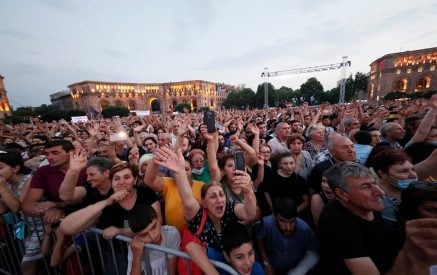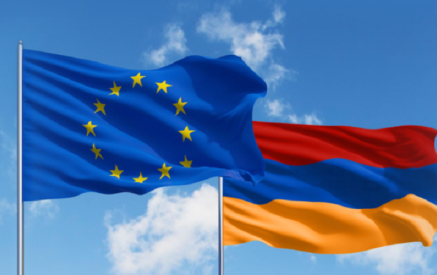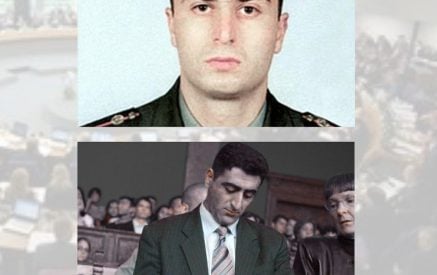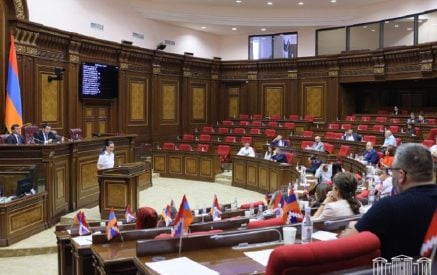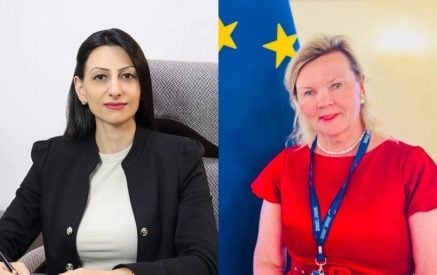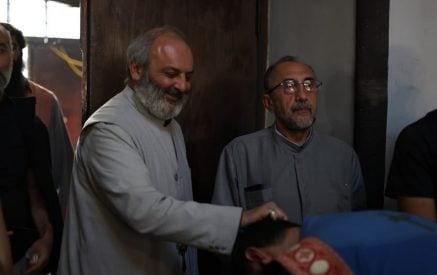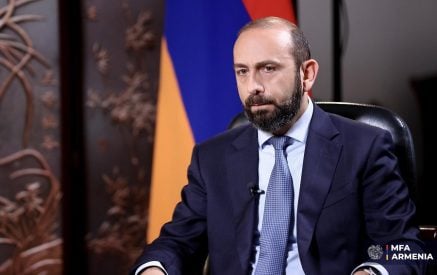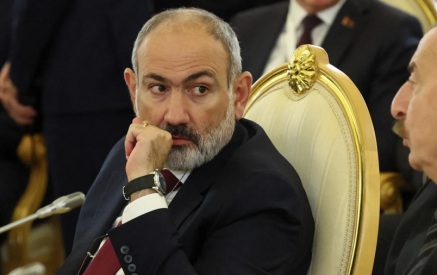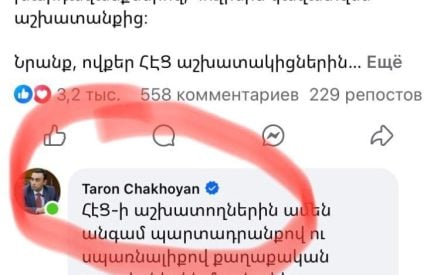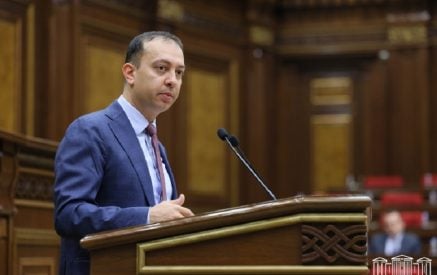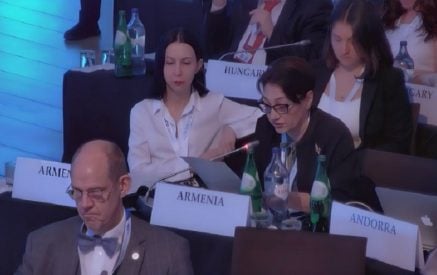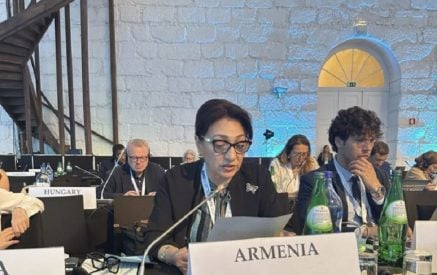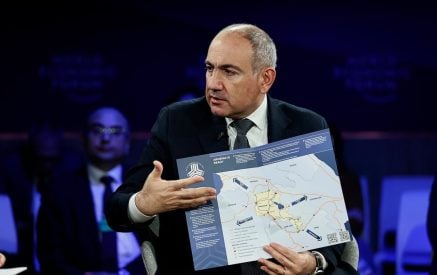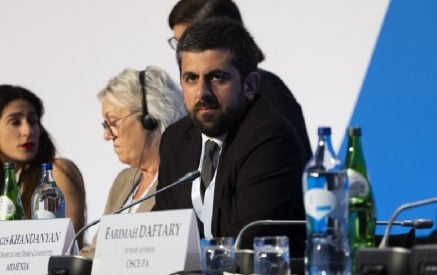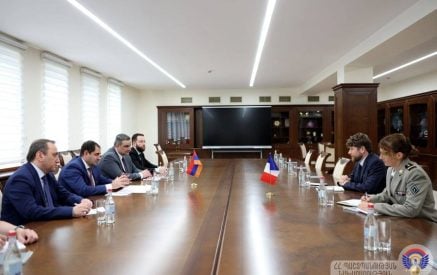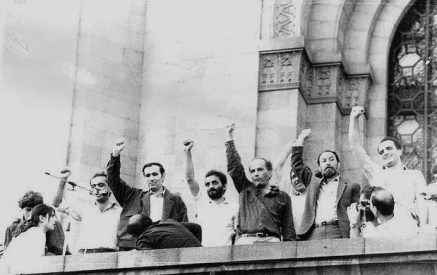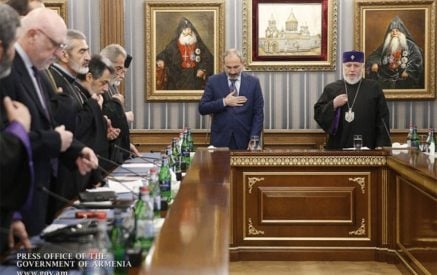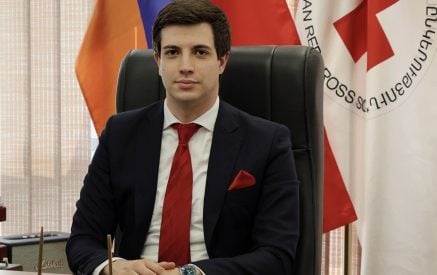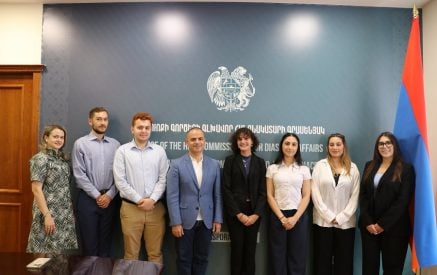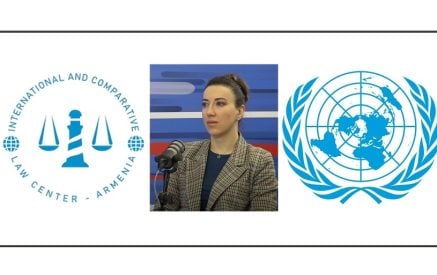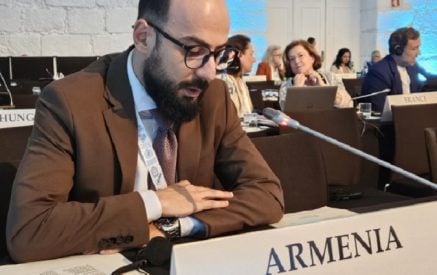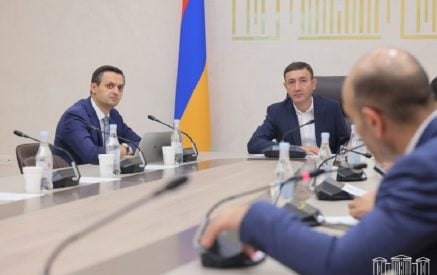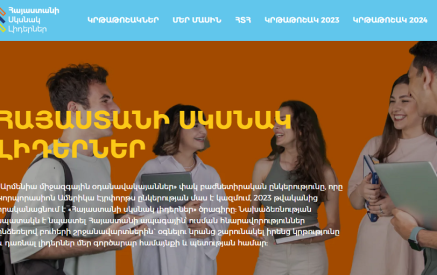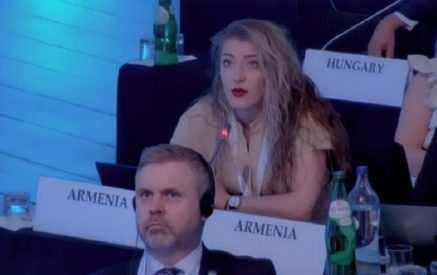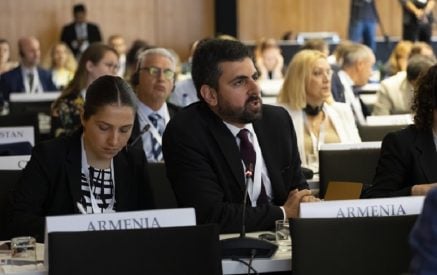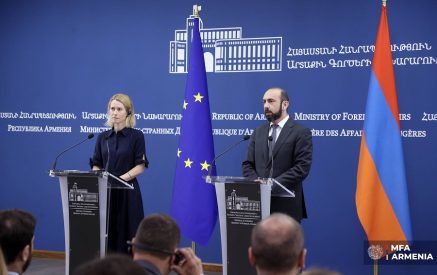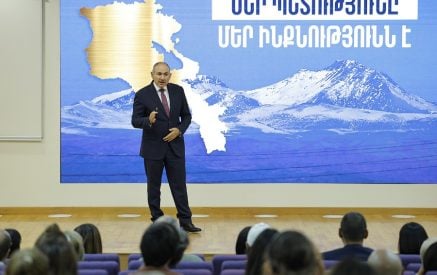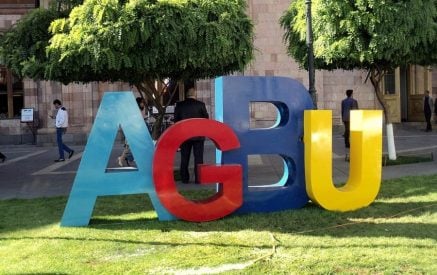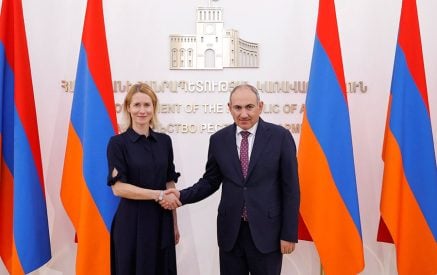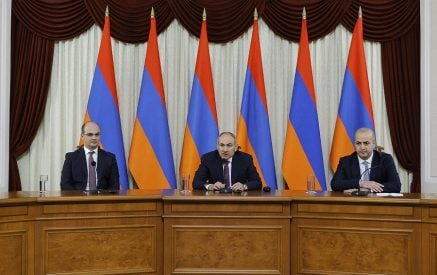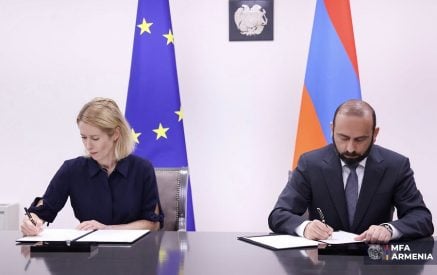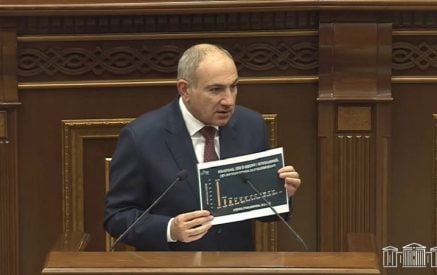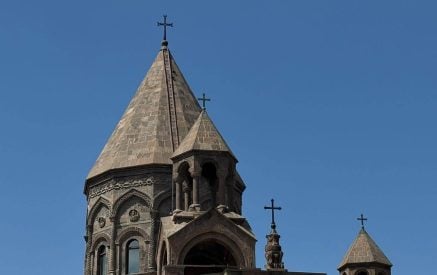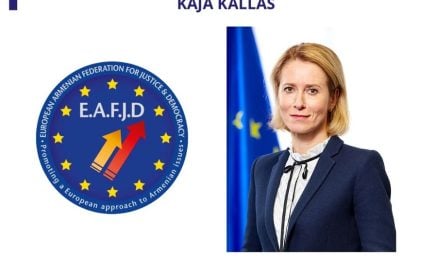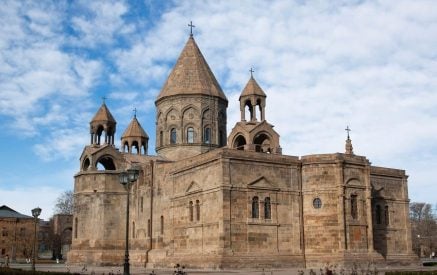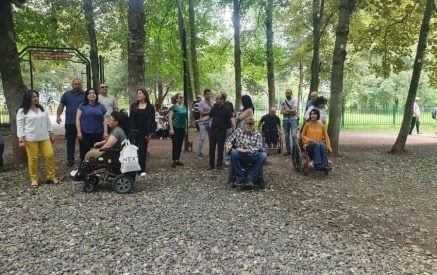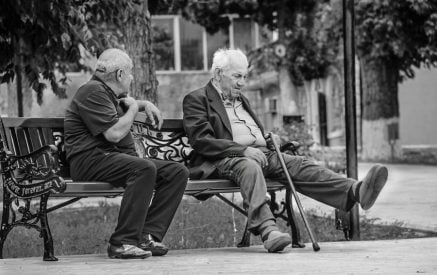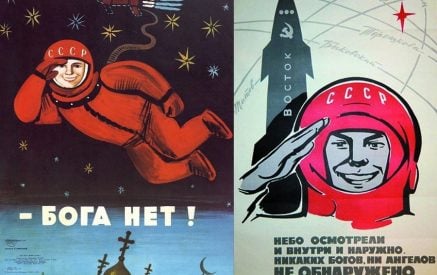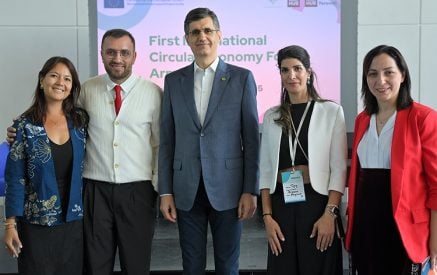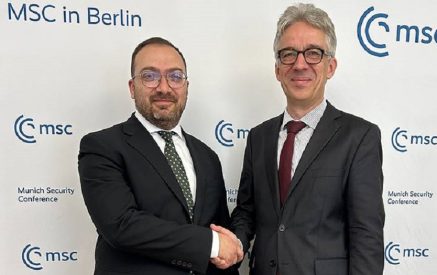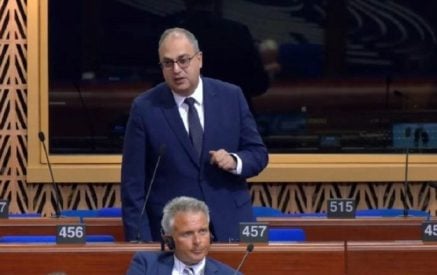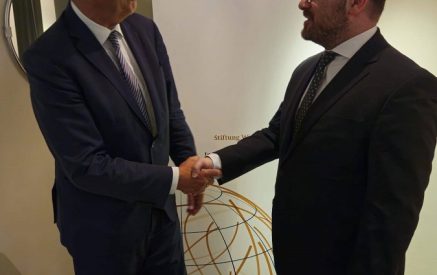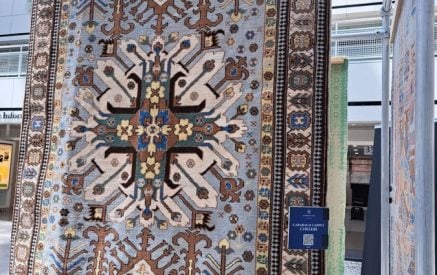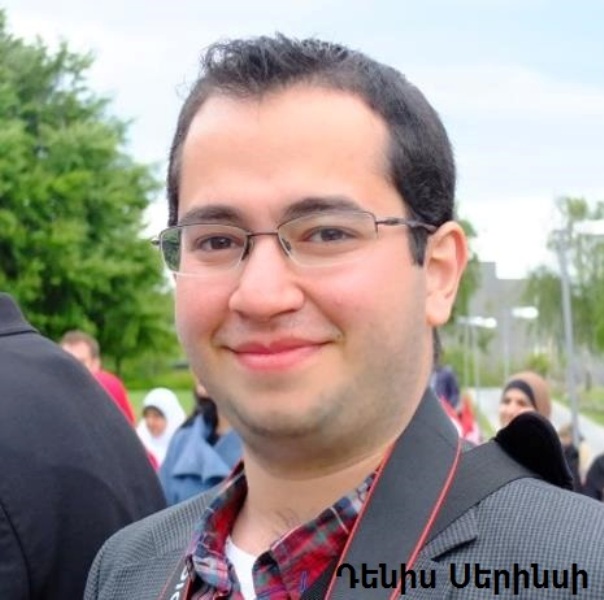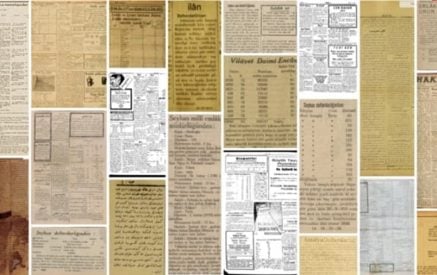In connection with the 100th anniversary of the Armenian Genocide various events of different sizes and formats were taking place worldwide in order to increase the awareness about the Genocide and to ensure its international recognition as well as the recognition by Turkey. On 24th of April at Støberiets cafe in Copenhagen, Denmark, by the initiative of the organisation SOS Mod Racisme a public discussion dedicated to the Armenian Genocide took place. It is noteworthy that public discussions comprise an important part of the social-political life in Copenhagen. According to the website of SOS Mod Racisme, it is an international movement, having branches in Europe, Africa and America. The Danish branch of the organisation works to ensure the dialogue between people and to exclude discrimination, fighting against xenophobia and racism and for equal rights and friendship among people.
The first speaker in the event concerning the Armenian Genocide was historian, journalist and writer of Kurdish ethnicity Deniz Serinci who referred to several historical facts of the Genocide and the processes taking place within the society of Turkey regarding the Armenian Genocide, as well as the disagreements and debates in Denmark concerning the Genocide. Serinci referred to the Hrant Dink’s murder in Istanbul, afterwards he mentioned a professor, Ugur Ümit Üngör, an expert on the Armenian Genocide from Utrecht University who, while visiting Denmark, has said that Turkey is afraid of the territorial demands of Armenia and paying compensation to the successors of the murdered. Deniz Serinci also referred to the words of Mehmet Ümit Necef, a professor from the Southern University of Denmark, who says that it is always difficult to solve 100-year territorial arguments and that countries do not support the territorial demands of Armenia regarding the Eastern Turkey. According to the journalist, Üngör does not agree with Necef’s opinion. Nevertheless, both scholars agree that the self-understanding of Turkish people is standing on the way of the recognition of the Genocide: the reality was never presented in the textbooks in Denmark, they have been brought up with the idea that it was them who were the victims of Christian aggression. The journalist thinks that after lying to a nation of 80 million for 100 years it is difficult to tell them that everything they have learnt in school is a lie. He also mentions that there have been Turks and Kurds who were against the actions of the government and provided help to persecuted Armenians.
The editor of the magazine SOS mod Racisme Marianne Olsen in her speech called on the civil society pointing out that if the politicians do not recognise the Genocide, at least the society should speak out loud about it and make it clear for the politicians that they expect the recognition of the Armenian Genocide. Olsen also mentioned that the problem is not between Turkish and Armenian people but between those who do recognise the Genocide and who do not. Olsen also recalled the murder of Hrant Dink by Turkish nationalists and the hundred thousands of people at his funeral. She also reminded that the word genocide was created after the first genocide of the 20th century. Although the Convention on the Prevention and Punishment of the Crime of Genocide was adopted in 1948, Armenian Genocide is a fact and it cannot be avoided. The conclusion of the editor was the following: the recognition of the Armenian Genocide by the Danish Government should be reached.
The reasons for not recognising the Genocide by Denmark were addressed by Copenhagen City Council member Klaus Mygind and lawyer Niels-Erik Hansen. The attendees asked questions to the speakers. The discussion contributed to the increase of the awareness of the Armenian Genocide within the Danish society.
One of the speakers during the public discussion was also Sose Mayilyan, Armenian student at the Law Faculty of the University of Copenhagen. The topic of her speech was The Humanitarian, Political and Legal Consequences of the Armenian Genocide. She thanked the organisers for the event and then talked about the first dimension. Sose Mayilyan’s speech is presented below, with reductions:
“Close from the place where my house is in Yerevan, Mount Ararat is seen on which, according to the Bible, Noah’s ark has landed. Because of that Ararat is considered a Biblical mountain. It is greatly beautiful as a natural phenomenon. For Armenians, however, it is more than sightseeing: Ararat is the symbol of the lost Home. Exactly 100 years ago in the east of Turkey, which is known as Western Armenia, the genocide of 1.5 million Armenians was planned and committed by the Turkish Government. The Government firstly disarmed Armenian men, those who refused to give up the arms, were sent to prison; the Government began collecting Armenian men under the pretext of sending to the front-line. They were all brutally killed afterwards.
On 24 April, 1915 the Armenian intellectuals of Constantinople were exiled and beheaded on the way of exile. The first step of the committing of the genocide was taken. For this very reason April 24th is the commemoration day of the Armenian Genocide. Women, children, elderly people were driven through Syrian desert, many of them were not able to continue the way and their bodies remained in desert.
About these events you can read in many archive materials, including the memoirs of Henry Morgenthau, the US Ambassador to Turkey, Danish big humanitarian Marie Jacobsen and so on. And now, after 100 years, being in Jacobsen’s homeland, I am obliged to express my gratitude to her for the priceless help to my nation.
The reaction of the world to the Armenian Genocide at that time was not proportionate at all. The world was mainly silent. Armenian nation was deprived of most of its historical fatherland.
Now I would like to present my personal story. My grandfather was born in Van, Western Armenia. In the days of the Genocide, my grandfather lost his only brother. In 1960s, after long searches, my grandfather could find out that his brother lived in Baghdad. A letter correspondence started between them which continued until my grandfather’s death, 1978. His brother died later in 1992. They both died without seeing each other, because the Soviet Union did not let my grandfather to travel to Baghdad and his brother to Yerevan. Here are two human destinies, two brothers, who did not see each other; it was a consequence of the Genocide. You can hear of numerous such stories.
These are only a few sentences, but there is a destiny of one whole Christian nation behind these political consequences, a nation which has adopted Christianity in 301, which uses the alphabet created in the 5th century to date, nation which was the first to translate the Bible.
The 100th anniversary of the Armenian Genocide is an opportunity to talk about the prevention of genocides. This is the legal part of my speech. Here, I would like to mention Adolf Hitler’s words, when burning alive the Jewish people he was saying: “Who, after all, speaks to-day of the annihilation of the Armenians?” Turkish leaders, committing genocide to Armenians, were led by the single principle that if there are no Armenians, there is no Armenian Question.
I am not optimistic that it is possible to prevent the genocides by the existing political and legal tools. The initiators of a genocide are led by the principle of Alexander the Great by cutting the Gordian knot by a sword. If a nation does not exist, its fatherland does not either. Probably the most effective method of genocide prevention is the drafting of such legal mechanisms which will show its organisers that in addition to the recognition of the crime such legal consequences will follow, that the results of their planned genocide will disappear. Such a tool can be the taking the territory of the residence of the ethnos which was subjected to genocide under the international supervision.
Another tool can be to consider illegal the settlement of the representatives of the nation who committed the genocide or criminals in those territories.
I believe these two mechanisms can vitally help in the prevention of future genocides. 100 years have passed since the Armenian Genocide and the issue of the prevention of any genocides is still up-to-date. Today it is crucial to reach the international recognition and condemnation of the Armenian Genocide”.


